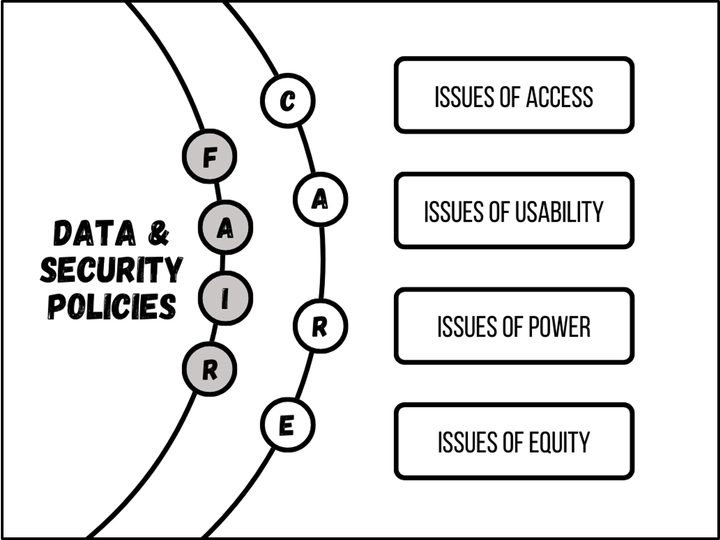Technical communication's fight against extractive large language modeling by applying FAIR and CARE principles of data
 Complimentary depiction of the FAIR and CARE data principles
Complimentary depiction of the FAIR and CARE data principlesAbstract
In this article, we assess the data practices of the prominent AI-assisted writing technology, Grammarly, by applying data principles that advocate for empowering Indigenous Data Sovereignty (IDSov). Our assessment is informed by our work with an Inuit tribal organization from rural Arctic Alaska that generates data and metadata about potentially sacred tribal activities. Our analysis of Grammarly’s large-language modeling practices demonstrates how technical communication can hold businesses to principled data practices created by Indigenous nations and communities who understand how to create more just futures.
Type
Publication
In Journal of Business and Technical Communication (Jan. 2025, 39.1)
Indigenous Data Sovereignty
Critical Data Studies
Technical Communication
FAIR Data Principles
CARE Data Principles
Large Language Modeling
Authors
Assistant Professor of Technical Communication
My research interests include the rhetorics of data work, as well as supporting community-engaged and self-determined Indigenous Data Sovereignty.